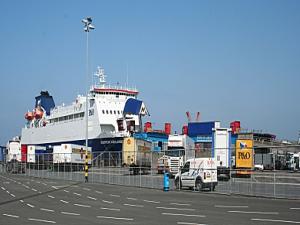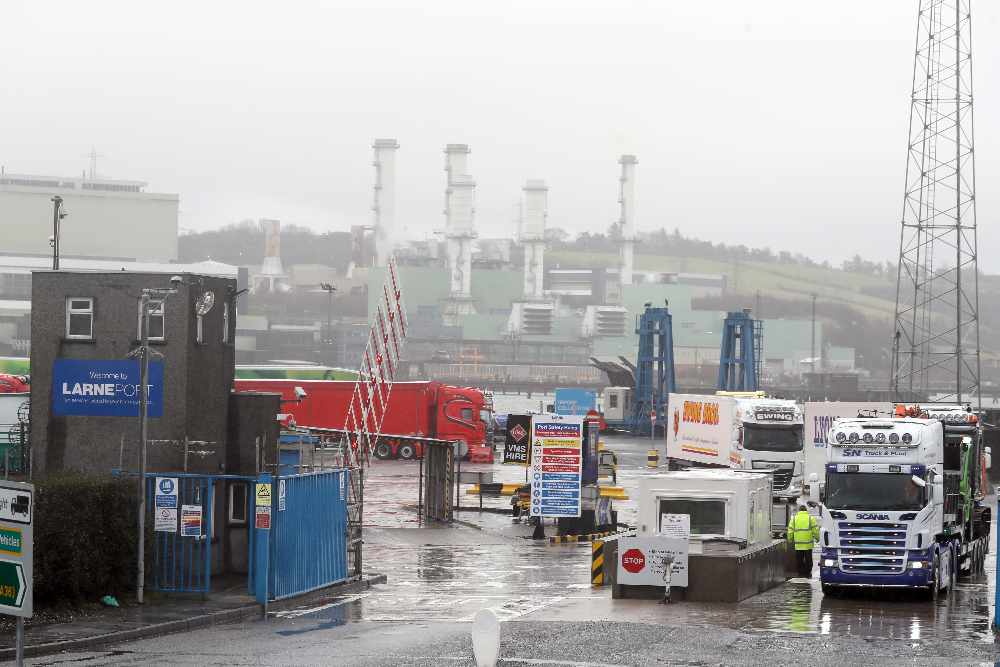
Q Radio News/PA
Northern Ireland’s Agriculture Minister has halted construction of permanent inspection facilities for post-Brexit checks on agri-food goods arriving from Great Britain.
DUP minister Gordon Lyons has also stopped further recruitment of inspection staff for the port facilities and said charges would not be levied at the ports on traders bringing goods from GB into Northern Ireland.
Ongoing Irish Sea trade checks, which are taking place at existing repurposed port buildings and other temporary facilities, will continue.
Mr Lyons’s decision relates to ongoing work on new purpose-built inspection facilities at ports like Belfast and Larne.
Sinn Fein deputy First Minister Michelle O’Neill branded the move a “stunt”.
SDLP Infrastructure Minister Nichola Mallon questioned whether Mr Lyons could take the decisions without wider approval of the Stormont Executive.
She, along with Sinn Fein Finance minister Conor Murphy and Alliance Justice minister Naomi Long, wrote to executive colleagues on Friday evening demanding an emergency meeting following the DUP minister’s actions.
It remained unclear on Friday night when such a meeting might be convened as Stormont officials sought legal advice on whether Mr Lyons was able to act unilaterally on the matter.
There was an expectation that a meeting could be called over the weekend.

Going public with his decision on Friday evening, Mr Lyons told the PA news agency: “I’ve just let executive colleagues know that today I instructed my department to halt work on a range of issues relating to work at the ports.
“This is in and around a number of areas, first of all further infrastructure, any further infrastructure builds; the additional recruitment of staff; and also the charging at the ports.”
The decisions come amid the ongoing controversy over disruption caused by the Northern Ireland Protocol, which governs Irish Sea trade post-Brexit.
Unionists are angry at the protocol’s requirement for checks on many goods entering Northern Ireland from the rest of the UK.
They claim it has driven an economic wedge between the region and Great Britain, and has undermined the Union as a result.
Mr Lyons said his move was in response to the “practical difficulties” caused by the protocol.
He cited uncertainty over the movement of goods when grace periods currently limiting protocol bureaucracy end at the start of April.
“It’s real nightmare for us and it’s going to be causing us an awful lot of problems,” he said.


 Education Authority boss hits out at criticisms of public services
Education Authority boss hits out at criticisms of public services
 Man in 90s dies following Co Down road crash
Man in 90s dies following Co Down road crash
 Police to increase patrols after second incident of shots being fired in Belfast
Police to increase patrols after second incident of shots being fired in Belfast
 Woman charged over theft of campaigner’s car ‘must stay out of Belfast’
Woman charged over theft of campaigner’s car ‘must stay out of Belfast’
 Bluetongue restrictions in Northern Ireland will be relaxed from Friday
Bluetongue restrictions in Northern Ireland will be relaxed from Friday